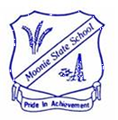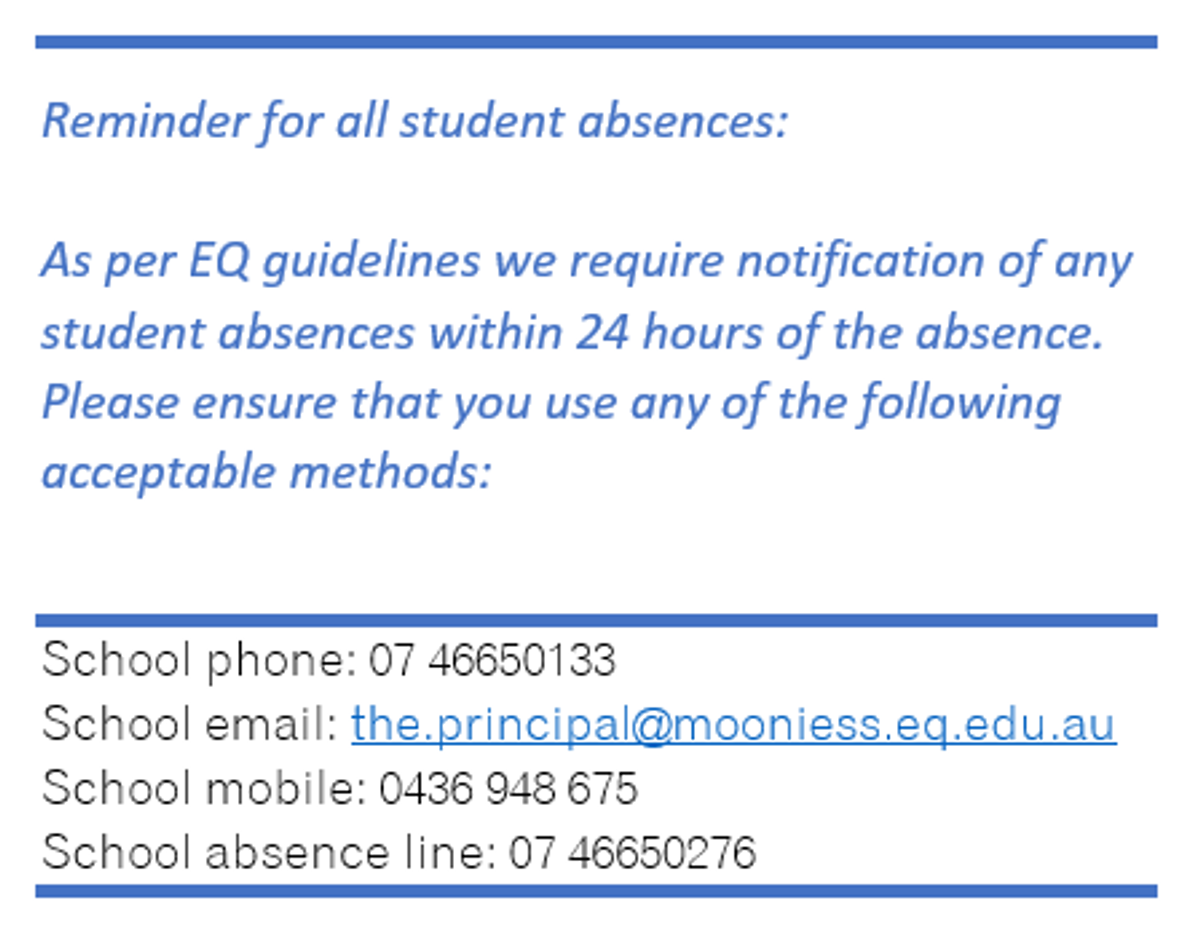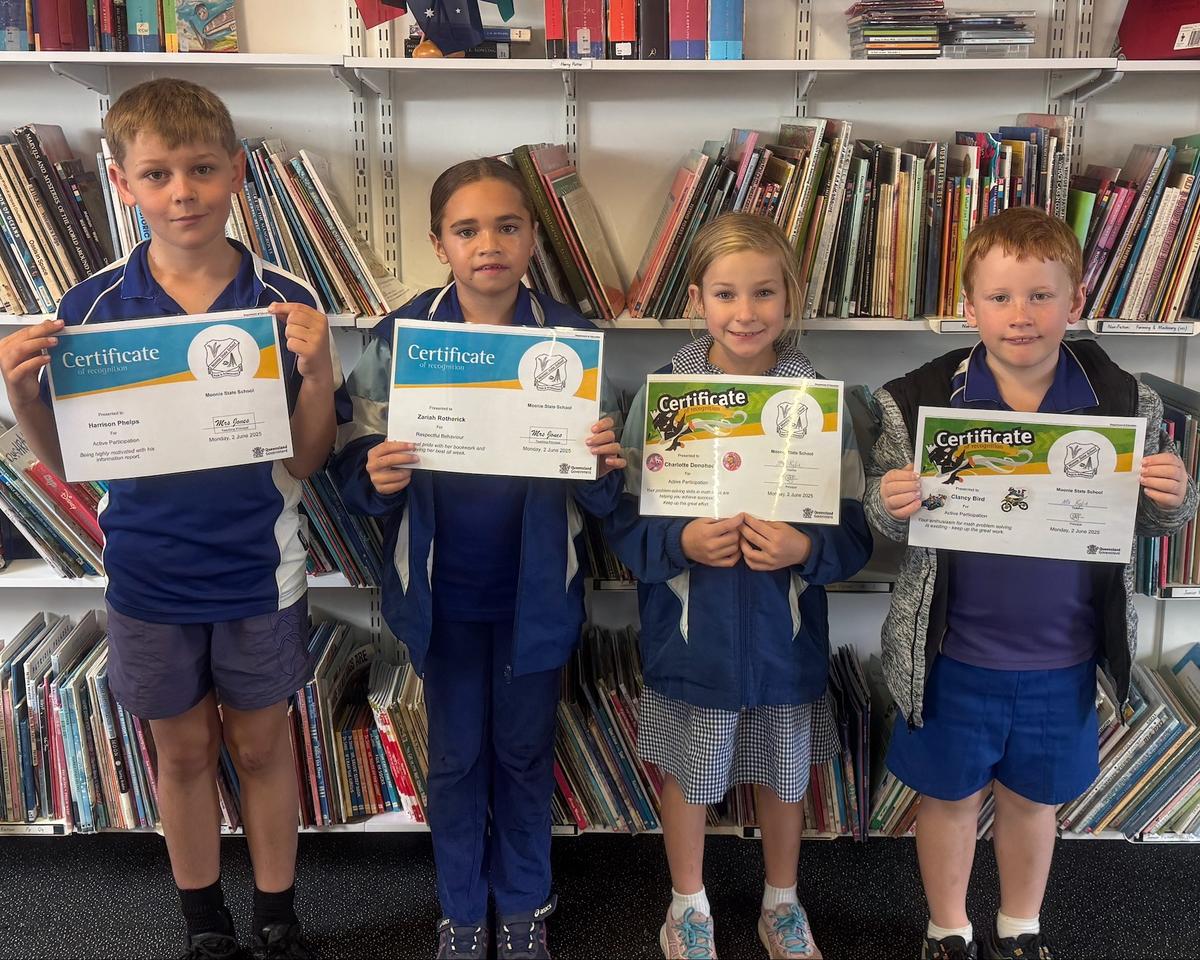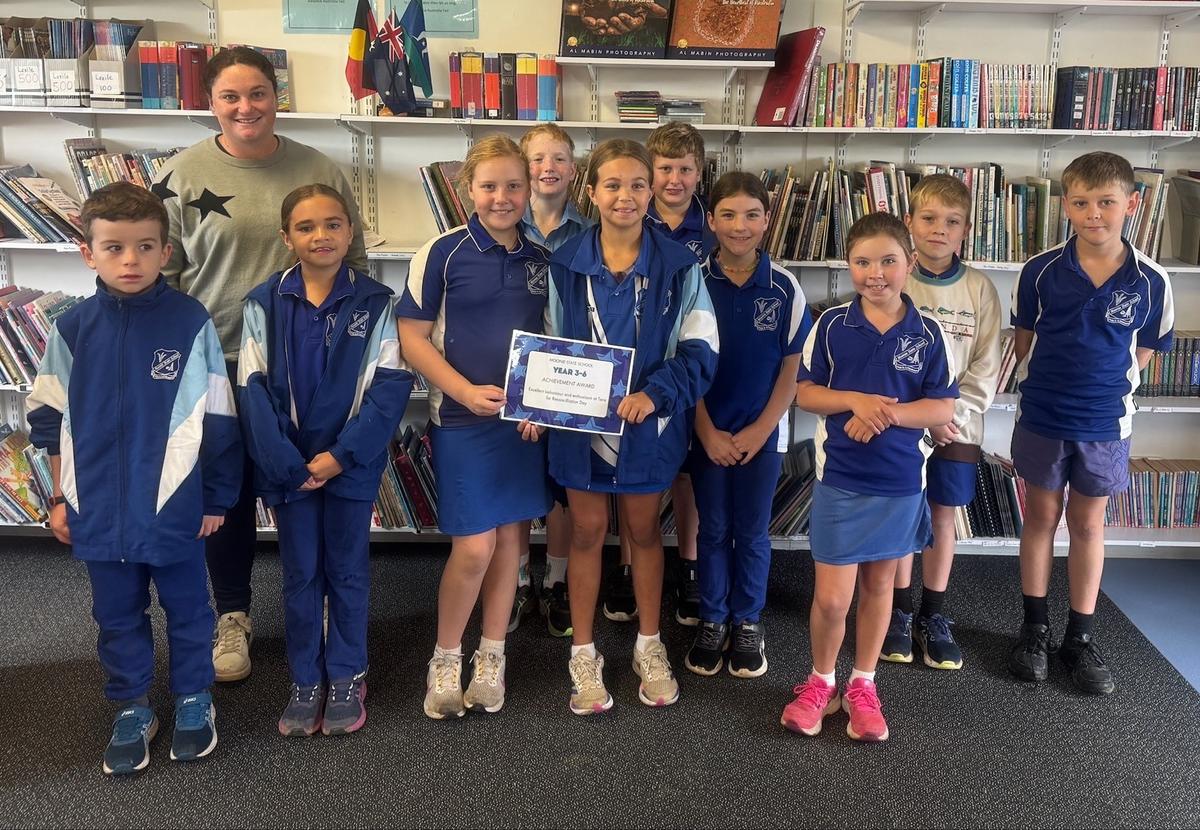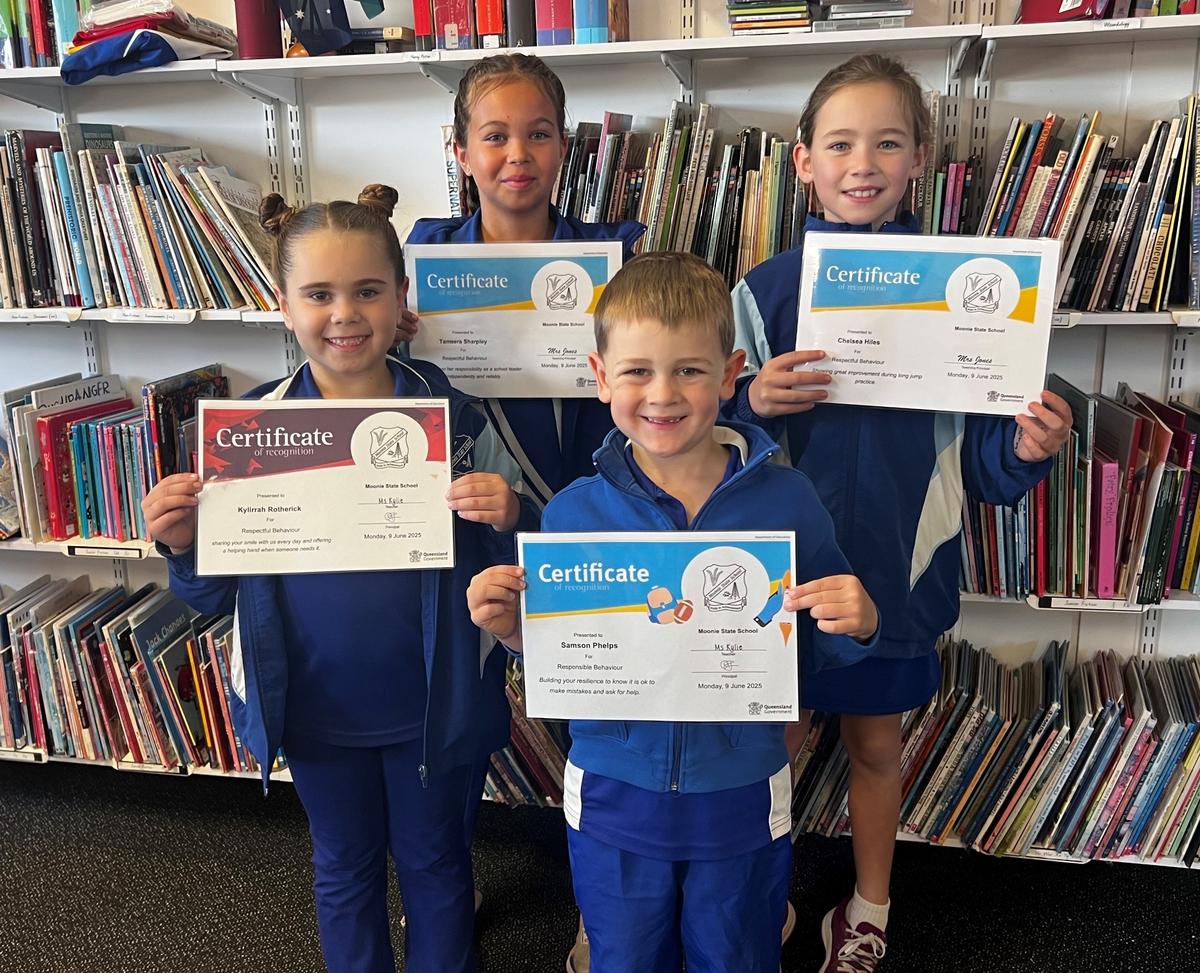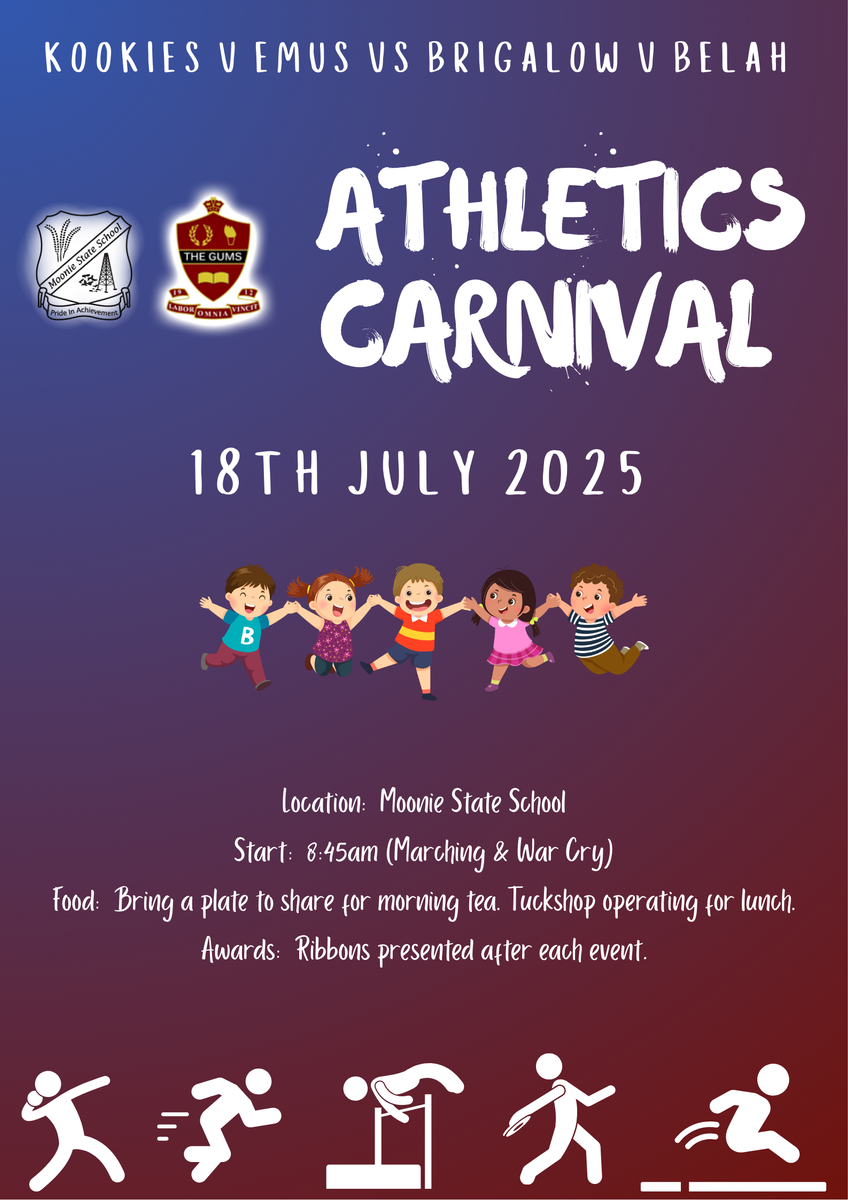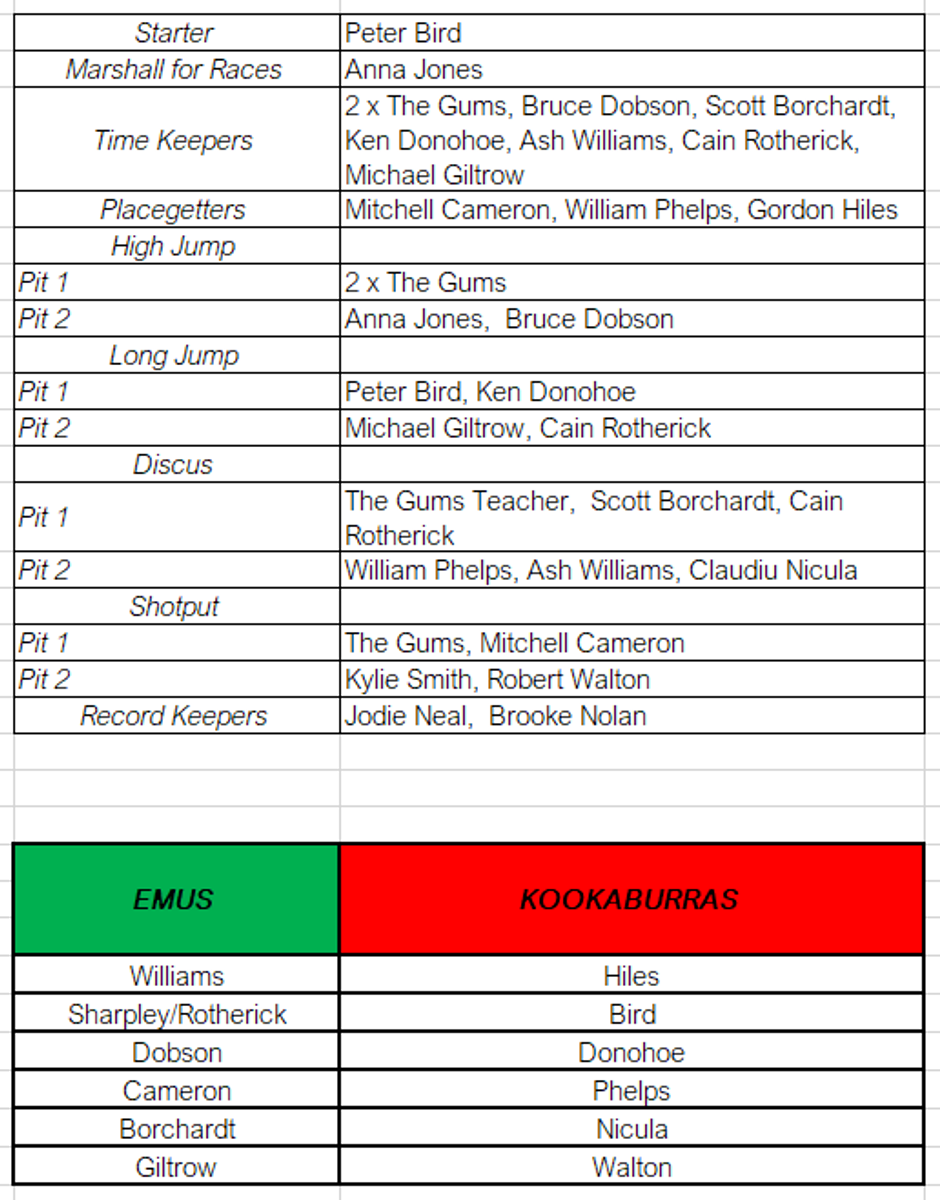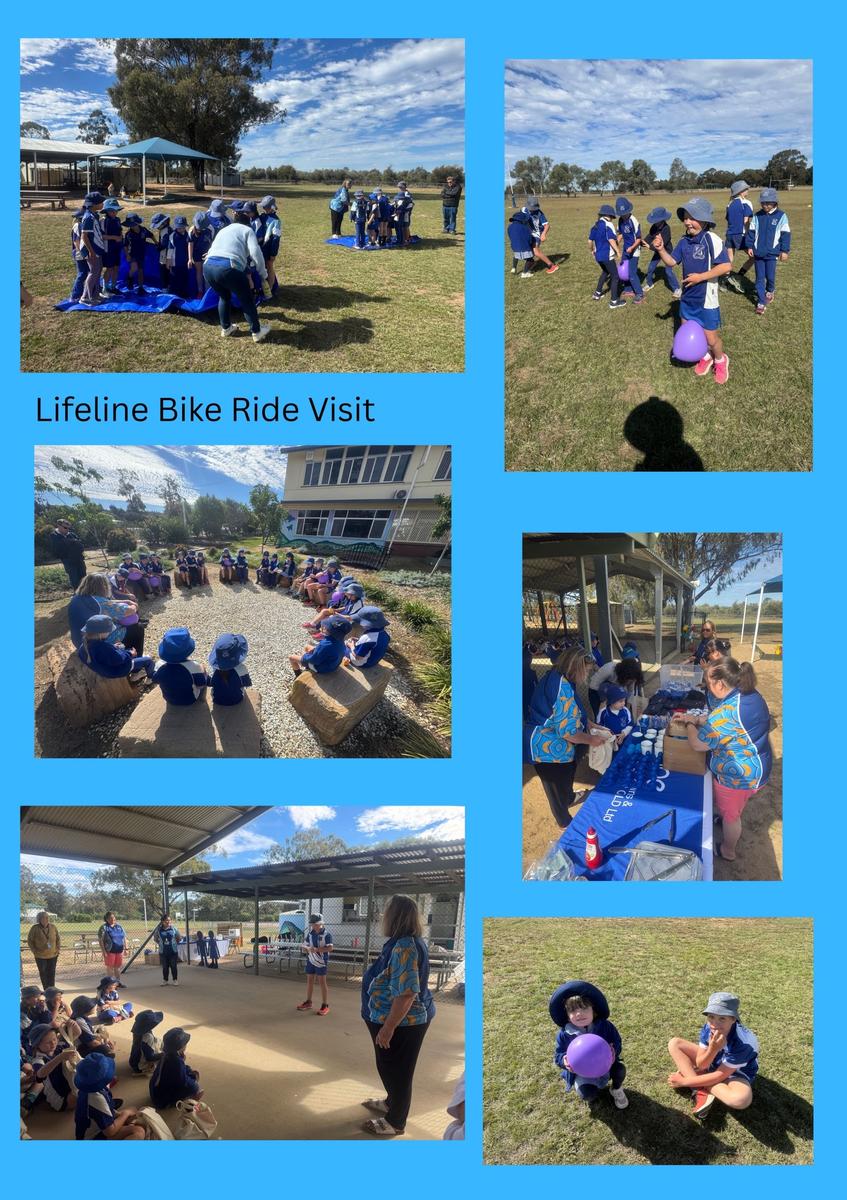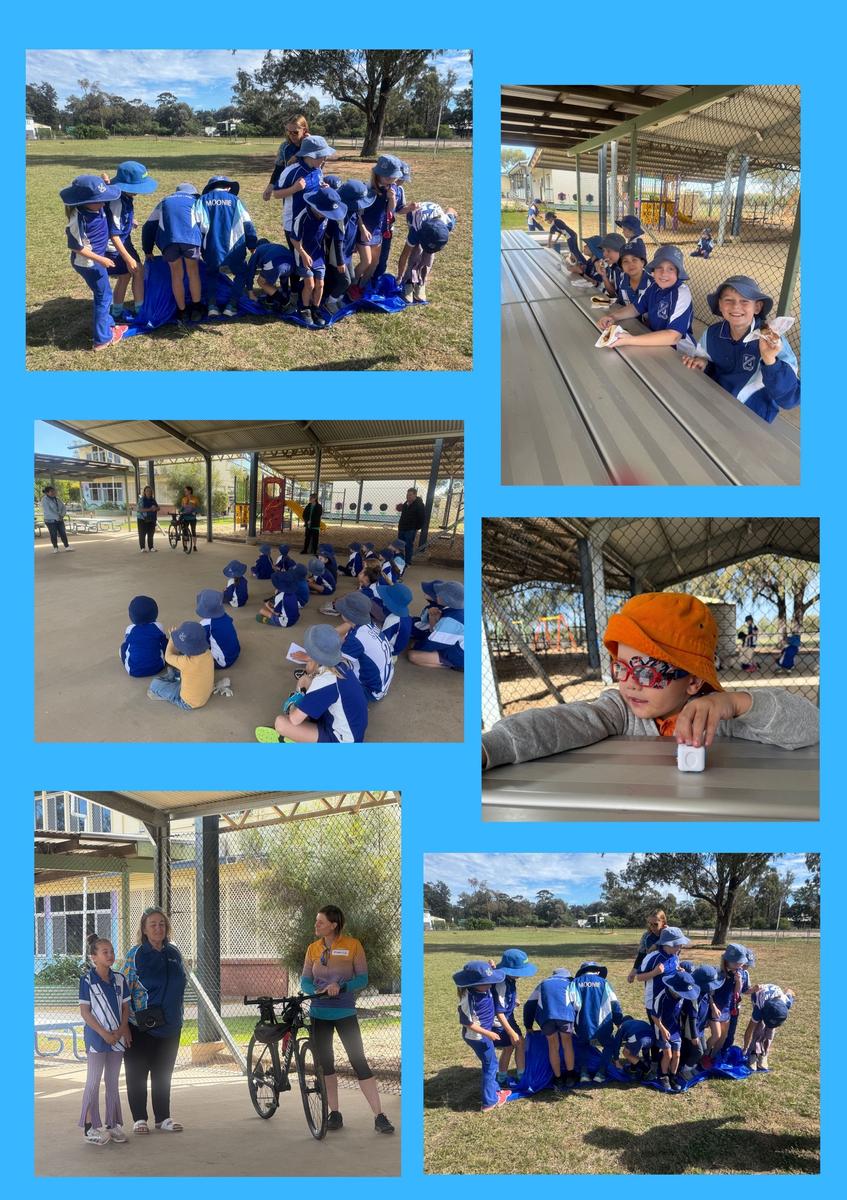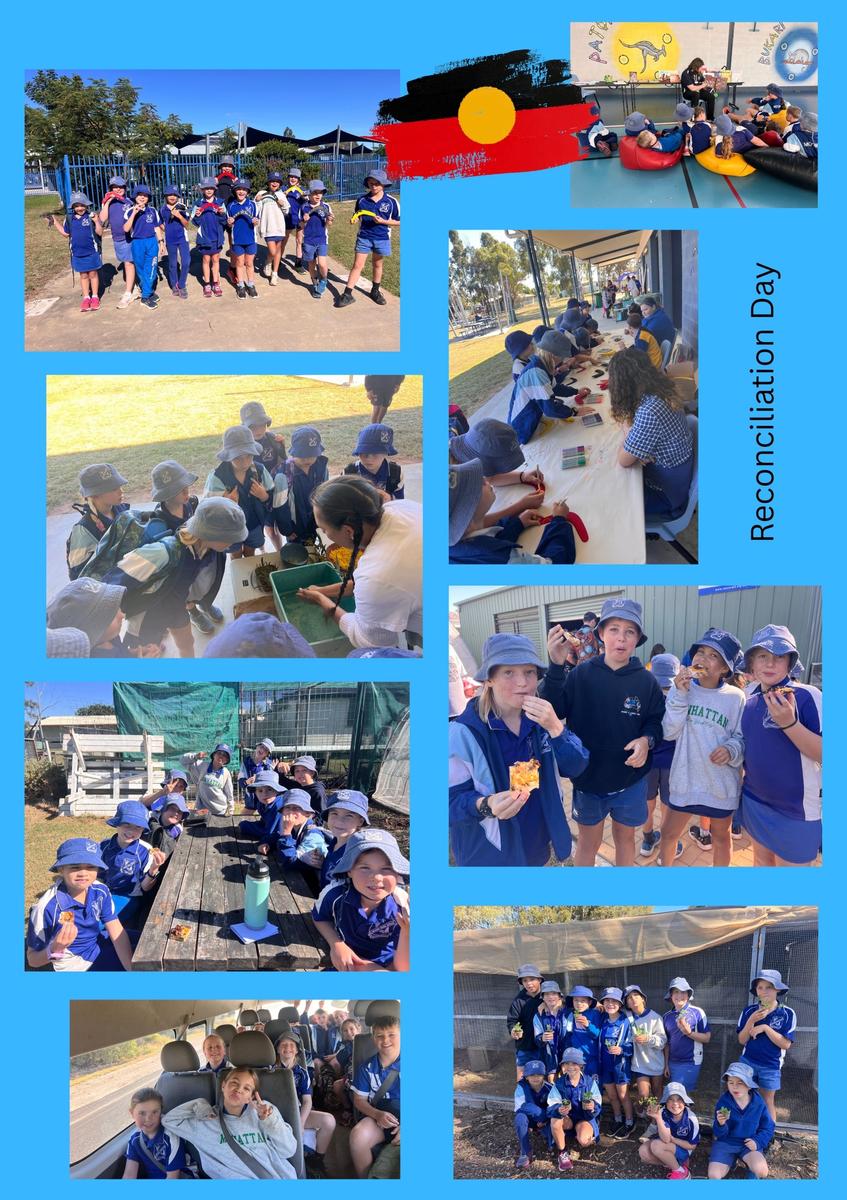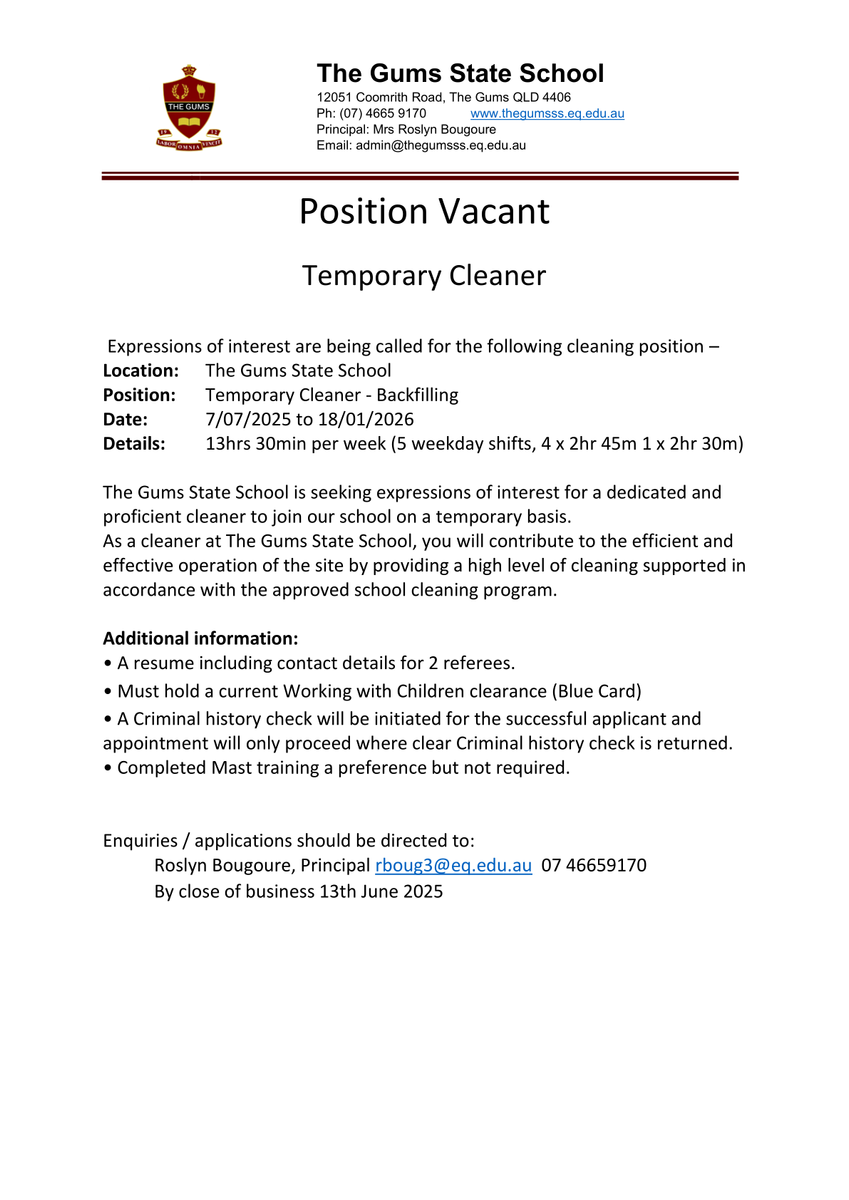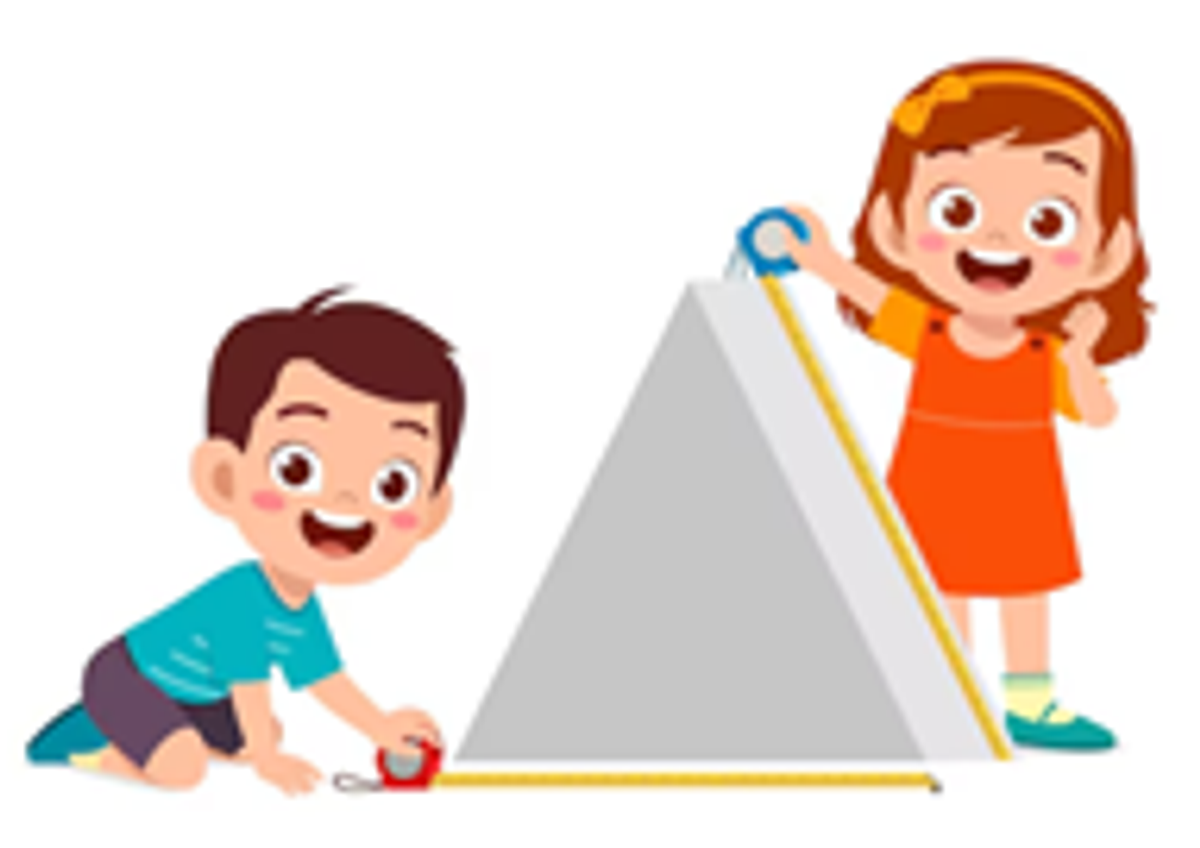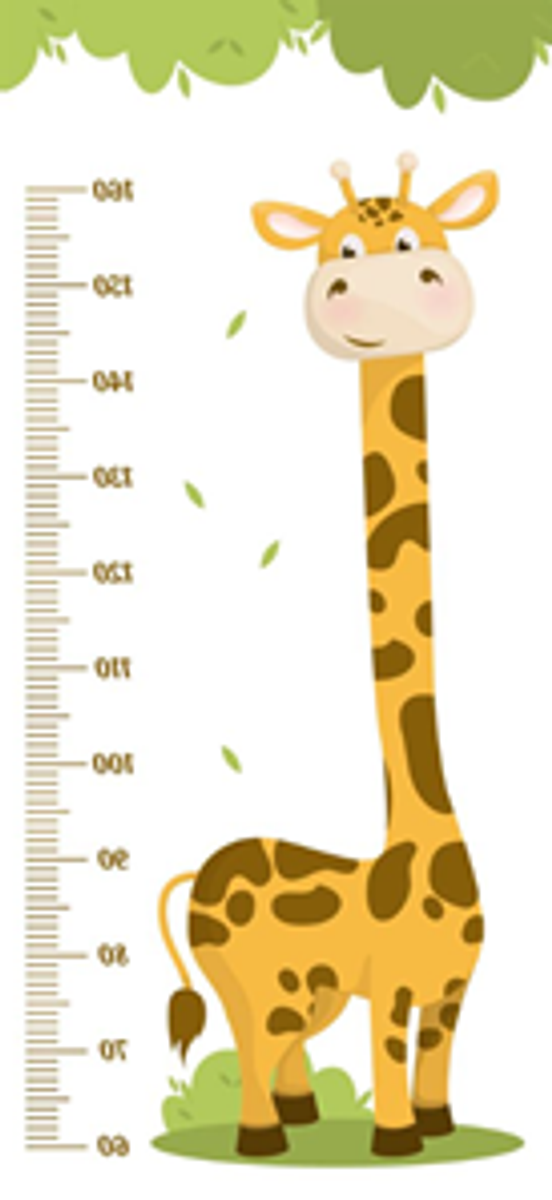School Noticeboard

Week 6
Clancy Bird - Your enthusiasm for math problem solving is exciting.
Charlotte Donohoe - Your problem-solving skills in math tasks are helping you achieve success.
Harry Phelps - Being highly motivated with his information report.
Zariah Rotherick - Taking great pride with her bookwork and giving her best all week.
3-6 Class - For excellent behaviour and enthusiasm at Tara for Reconciliation Day.
Week 7
Tameera Sharpley - Taking on her responsibility as a school leader independently and reliably.
Chelsea Hiles - Showing great improvement during long jump practice.
Kylirrah Rotherick - For sharing your smile with us every day and offering a helping hand when someone needs it.
Samson Phelps - Building your resilience to know it is ok to make mistakes and ask for help.
Interhouse Athletics Carnival - 18th July 2025
Please note that each family has been allocated a job to help cover the requirements of the upcoming carnival. We hope that you can join us.
Kindy News
Early Math is more than numbers
“One… two… three…” you say as you count your baby’s toys for them. Even though your baby can’t solve equations, let alone speak, they are building early math and language skills with each number they hear.
And you don’t need to stop at numbers — there are many early math concepts that you can introduce to your young child, simply through language, play and reading books.
Here are some fun activity ideas to help introduce early math concepts to your child:
- Discover geometry: Shapes are a big part of geometry. Labeling different shapes — from squares to circles to stars — will help your child start to associate the words with the shapes, setting the early foundation of geometry. With toddlers and preschoolers, look at two- and three-dimensional shapes, so they can see how each object looks and functions. Blocks in different shapes are a great tool to use for this.
Play with volume: If you cook in the kitchen, you are already using volume. For babies and toddlers, start by using words like teaspoon, tablespoon, cup, pint and quart while you are cooking to get them familiar with the terms. Preschoolers can help you measure out ingredients using measuring cups and spoons. You can play fun games that teach incremental volume: how many tablespoons does it take to fill a quarter cup? How many cups go into your quart measuring cup?
Use comparisons: Many math lessons will involve word problems and comparisons as early as kindergarten. The more familiarity that your child has with comparison terms, the easier it will be for them to understand the word problems. You can create opportunities for your child to learn to compare by using toys of different sizes and words like more, less, lighter, heavier, bigger and smaller.
- See how tall they are: By the time they are preschoolers, most children become interested in how tall and how heavy they are. One idea to help talk about height is to chart their growth on a wall, showing how tall they are each year. For preschoolers, you can also begin to introduce units of measurement like inches and feet by helping your child use a ruler to measure how much they have grown.
- Reading books: Reading is an excellent way of introducing math language and concepts to your child. Books are a natural entry point that make learning math fun in the early years. Engaging your child in the math in storybooks build on their interest, discoveries and questions.
